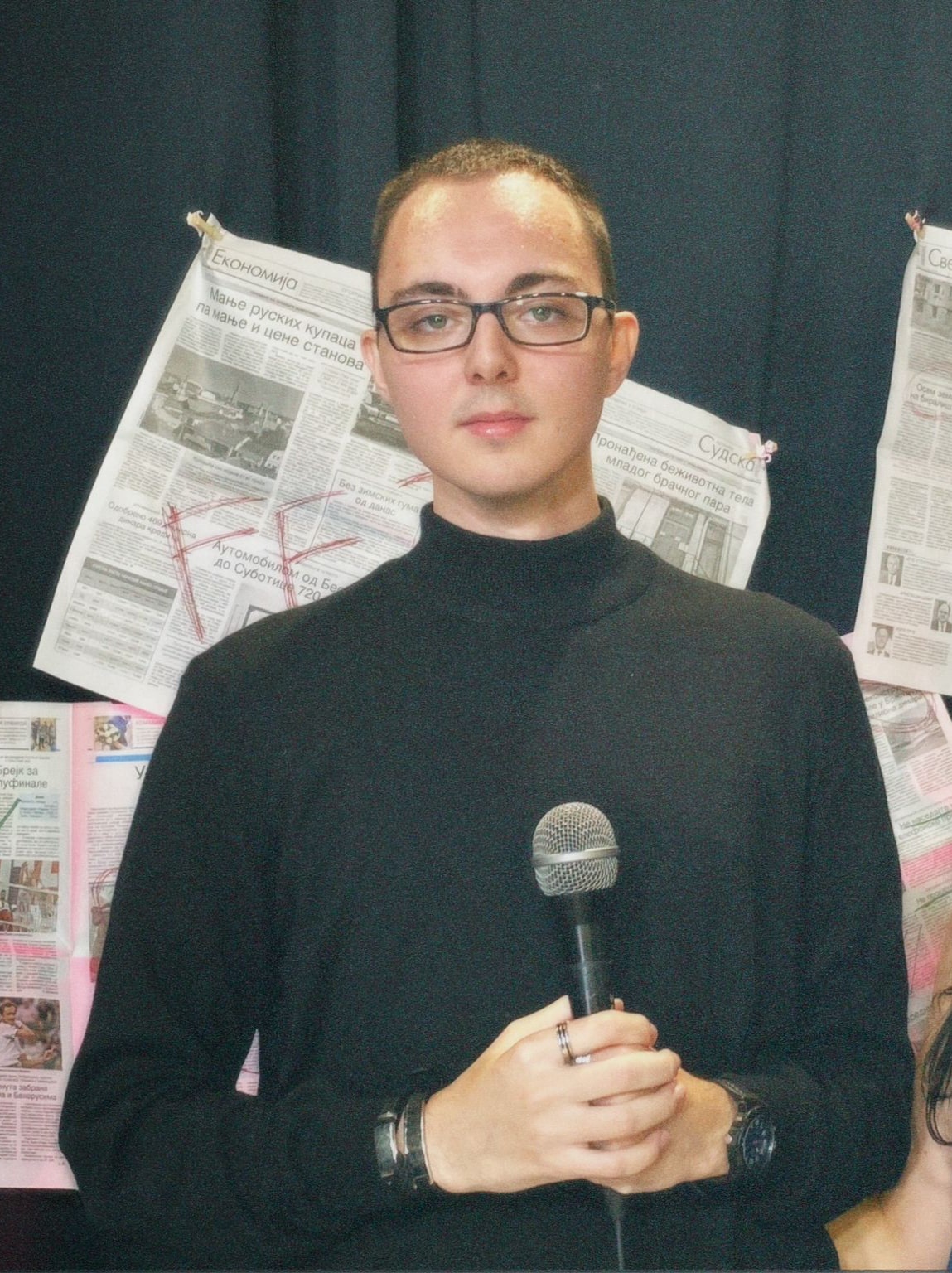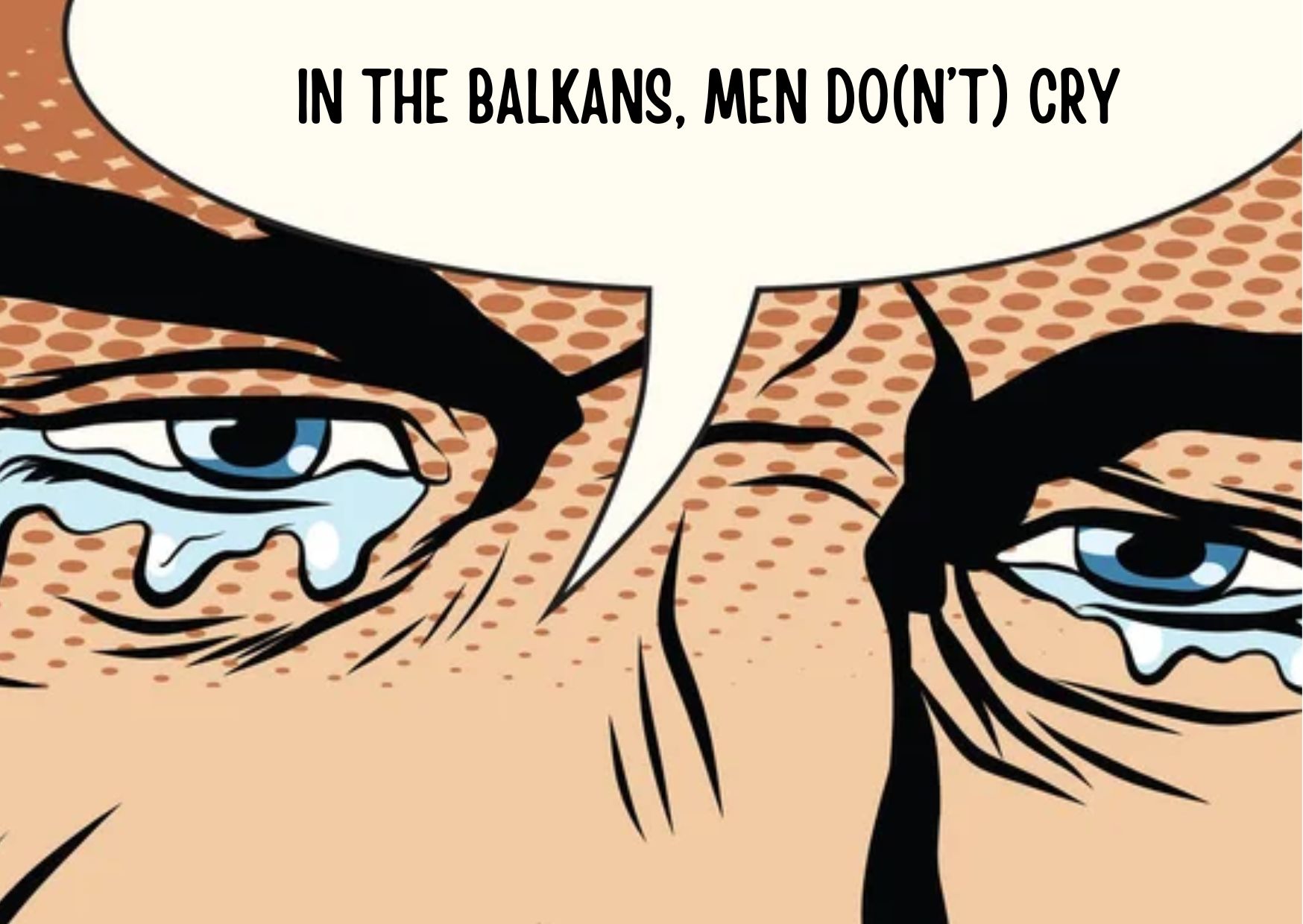In today’s fast-paced life and accelerating speed of technological development, it is essential to stop and try to establish a picture of the future, rather than let the ‘autopilot’ of society drive us to undiscovered destinations. That is exactly the idea behind the Media 2040 project.
Regional faculties have united in hopes of connecting their journalism and communication students to determine what people working in the media in the year 2040 desire in terms of their work, working conditions, and assets. Students from the Universities of Novi Sad, Sarajevo, Montenegro, Shkodra, Prishtina, and Ss. Cyril and Methodius University in Skopje will in the weeks to come, join online conferences along with their professors. In these online meetings, students will be able to communicate with people already working in the media which will try to help them understand the current situation in the online world and the newsrooms around the Western Balkan region.
The project revolves around students’ analyzing media space in their environment. They are separated into five groups which analyze journalists themselves, media institutions, technology, market and economy, and lastly, politics and governance. These fields of analysis target the aspects that affect journalistic work the most and the results are supposed to point in the direction of the weakest link in that chain. In other words, reveals which aspect of these has failed journalists the most in keeping them safe, providing them with the best working standards and opportunities to develop further.
Professors involved in the project agree that the biggest and best part of this project is twofold. On one hand, the analysis will help students understand their media situation more, as well as prepare them to more easily spot red flags in their work. The second aspect is connecting the students from the region.
Assistant professor from the Department of Journalism at the University “Hasan Prishtina” Prishtina Alban Zeneli sees organizing this project as a great step that every journalist should be willing to take and that is preparedness for cooperation, as most of the work can be done quicker and better when people stand united.
“In my view, this project’s main characteristic is inclusiveness. All six participating universities have overcome the obstacles, following the principle of respecting the specifics of each local culture”, says prof. Zeneli.
He hopes that his students will continue to work together, as that is their strongest force that will keep them going forward.
“In the future, students should work together, so that their views on the media, freedom of expression, and democracy push them forward”, said, prof. Zeneli.
His beliefs and hopes mostly match with those of Prof. Jasna Bachovska-Nedik from Ss. Cyril and Methodius University in Skopje. She says not only is the benefit for students the connections with their colleagues, but also a better understanding of media systems around them. One of the best resources for learning about media systems is, in her opinion, the people who work in the media.
“The best component of the project is that the students will have the opportunity to get acquainted with research results from projects important for the media in the region and the opportunity to talk to established journalists”, says prof. Bachovska-Nedik.
Apart from interaction, group work is also an important part of Media 2040. This work is supposed to prepare students for their future jobs, make them more efficient, and make them aware of problems that may arise in the years to come. This is one of the reasons that inspired Prof. Dr Lamija Silajdžić to call her students to join the project.
“The most useful and the most interesting aspect of the project are investigations that students will work on, and later publish for everyone to see. That work will synthesize their knowledge and creativity, both essential in their professional work“, says prof. Silajdžić.
Even though Media 2040 is made for students, professors can also benefit from it. Prof. Silajdžić adds that understanding, not only the media but also the ways of presenting knowledge to the students is a big aspect of this and similar project.
“I expect that I will learn something new about the phenomena and situation in the media in the region. That is very important for comparative analysis and improvement in our work, both with, and inside media'', concludes Prof. Silajdžić.
The students themselves see this project as a way to interact with their future colleagues, meet new friends, and get a wider picture of the media situation in the Western Balkan region.
“My favorite part of this project is that I have the opportunity to meet many young people from the region who share the same interests as me and that I have the opportunity to be a part of change. Cultural and geographical proximity, but also shared history, connect us with our neighbors and that is why it is important to be aware of political context and events, and therefore to understand the way their media works and how it communicates with the general public”, says Milica Blagojević, student-participant of journalism from the University of Novi Sad.
Her colleague, Nina Jović from Novi Sad, adds that this opportunity is great because even though she has a very high opinion of her studies, interaction with (future) journalists from the region is something she would like to see more of.
“I really enjoy the existing cooperation with students and I think it is amazing that we have an opportunity to exchange opinions and perspectives. This project enables us to meet journalists, mentors, and students from divergent media environments, broadening our connections but also helps us understand our job better which ultimately makes us better at accomplishing our goals. It combines the best of both worlds”, says Nina.
The continuation of the project foresees that the students meet in Shkodra at the end of January 2024. In Albania, they will present the results of their analysis and investigations and share them with others in order to show the current situation in the media in Western Balkan, aiding them in putting together a more vivid picture of the future.
How Important is it to be Familiar with the Media Landscape in the Region?
13.12.2023.
|
5 min read









